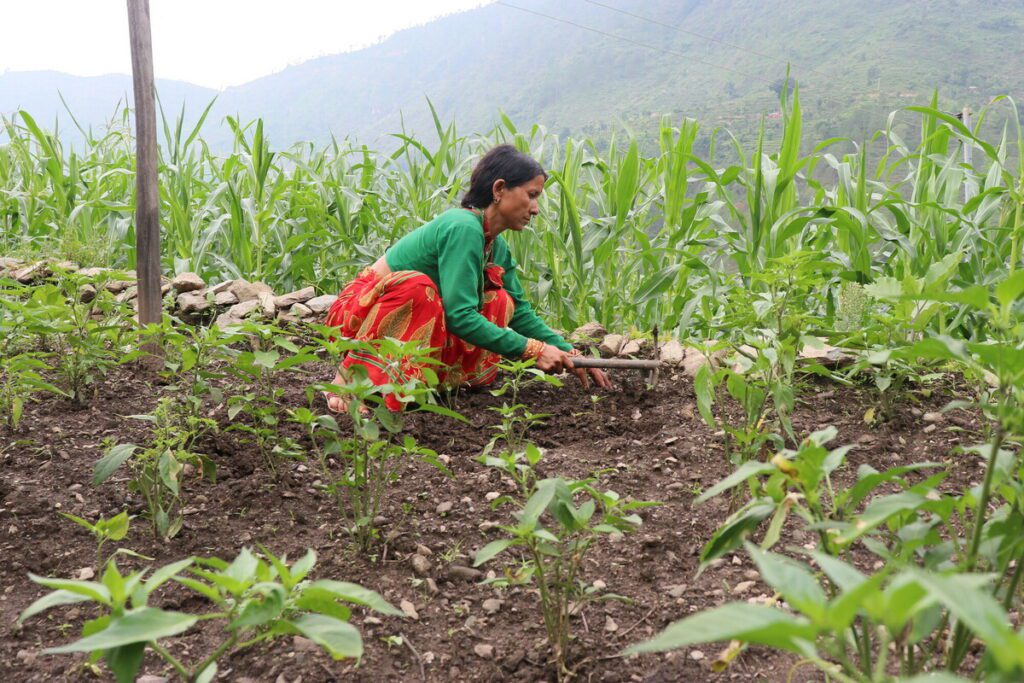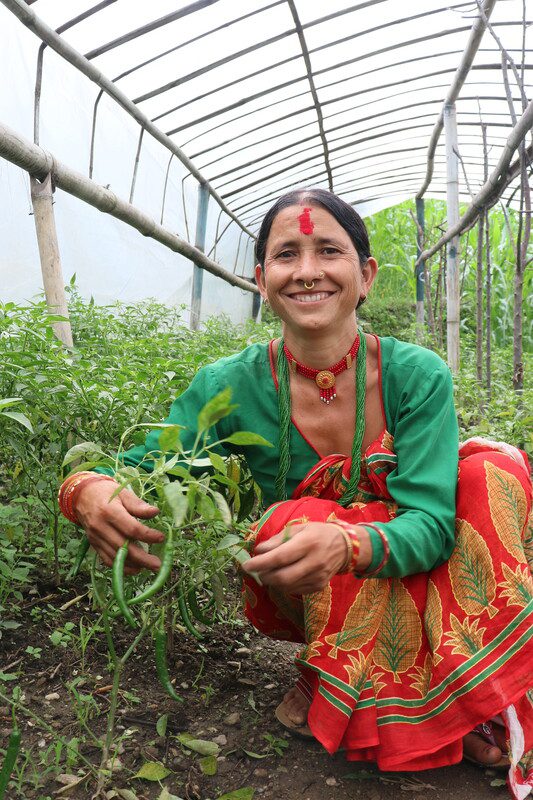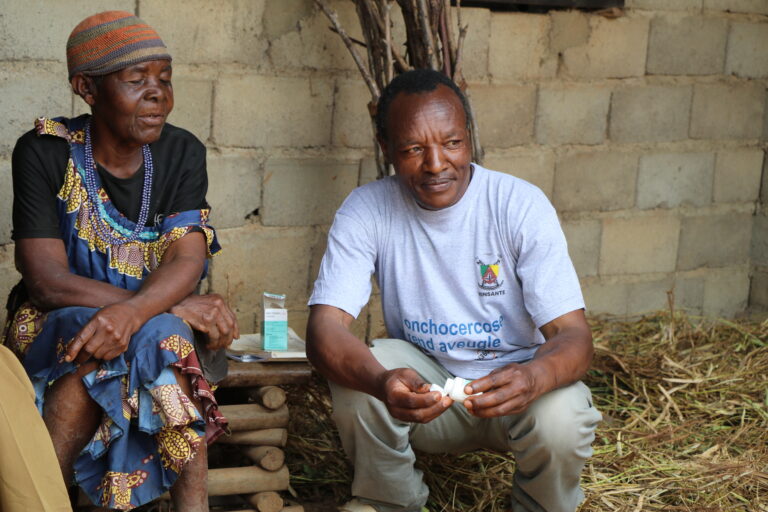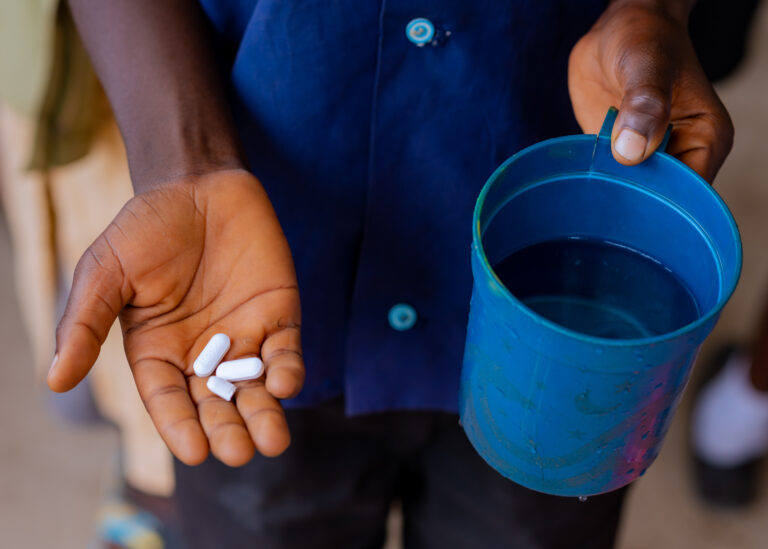Village Model Farmer Strengthens Nutrition and Resilience in Nepal
In a remote corner of western Nepal, a group of women farmers gathers on a hillside overlooking lush green terraced fields. They listen intently as Paru Thapa explains several new farming techniques that will help them adapt to extreme weather – and increase the quantity and variety of the crops they grow.
Paru learned these climate-smart agriculture practices through special training she received from Helen Keller Intl. Now, the 46-year-old mother of five takes great pride in mentoring other farmers in her community so that they, too, can improve their skills and can grow better crops.
“With climate-smart technology, we can now produce vegetables throughout the year,” she says. “By conserving water, using bio-fertilizer, and not using pesticides, we are also able to produce more crops [at a lower] cost.”
Threats to Food Security and Nutrition
Food insecurity is a longstanding problem in Nepal, where 44 percent of women and 57 percent of children lack an adequate diet. One in every four children under age five suffers from stunting due to malnutrition, which puts them at greater risk of disease and poor cognitive development. Making matters worse, the cost of food has risen steeply after prices of fertilizer and fuel soared following Russia’s invasion of Ukraine.

In Sudurpashchim Province, where Paru lives, more than 80 % of households are engaged in some type of agriculture. Though farming does improve access to more nutritious foods, reliance on it can also leave families vulnerable to the shocks of extreme weather events that damage or destroy crops.
In recent years, Nepal has seen increases in soil erosion, flash flooding, landslides, and droughts – all of which can be devastating to food production and livelihoods in farming communities. If crops are lost, families are often unable to afford or even find nutritious foods to replace them.
Cultivating Resilience for Families and Communities

To improve health and nutrition for women and children, especially during the critical 1,000 days from pregnancy to age two, Helen Keller partnered with the government of Nepal. As part of this effort, Paru and other village model farmers in the Achham and Bajura districts of Sudurpashchim were chosen to receive special training in climate-smart agriculture techniques.
Water management, crop protection, and the use of organic fertilizers were all successfully adopted by the trainees to increase production of nutrient-rich vegetables and mitigate the impacts of adverse climate events on gardens and farms. These women now share their knowledge and skills through community training sessions like the ones Paru hosts.
Helen Keller also partnered with local municipalities to help farmers build what are called polyhouses. These greenhouse-like structures, made with sheets of plastic instead of glass, provide protected environments for crops and give farmers the opportunity to grow a number of fruits and vegetables out-of-season.
Beyond increasing crop yields, improving nutrition, and building food security for families in Achham and Bajura, the techniques and resources shared by model farmers have given families an opportunity to earn an income through the sale of surplus crops.
As Paru points out, “Now that pests and diseases in our vegetables have decreased, we have increased both production and our earnings.” One community in Bajura has even begun organizing an “agricultural ambulance” to bring their surplus produce to markets in other villages of the district when needed.
The Merits of Leadership
For Paru, expanding the yields of her family’s farm is only the most tangible improvement. Becoming a village model farmer has had many personal benefits, too, including chances to bolster her own resilience and financial independence. “Before being trained as a village model farmer, I was entirely dependent on my husband for income,” she says. “Now, with my own earnings, I can purchase things I want.”
She also notes that, today, she can “speak up confidently” and feels “so empowered.”
While Paru and her peers are still creating ripples of positive change, US government funding suspensions have cut off access to the resources and support that help them provide training and mentoring. The village model farmers and their communities need our support more than ever to continue improving nutrition and food security and building resilience.



